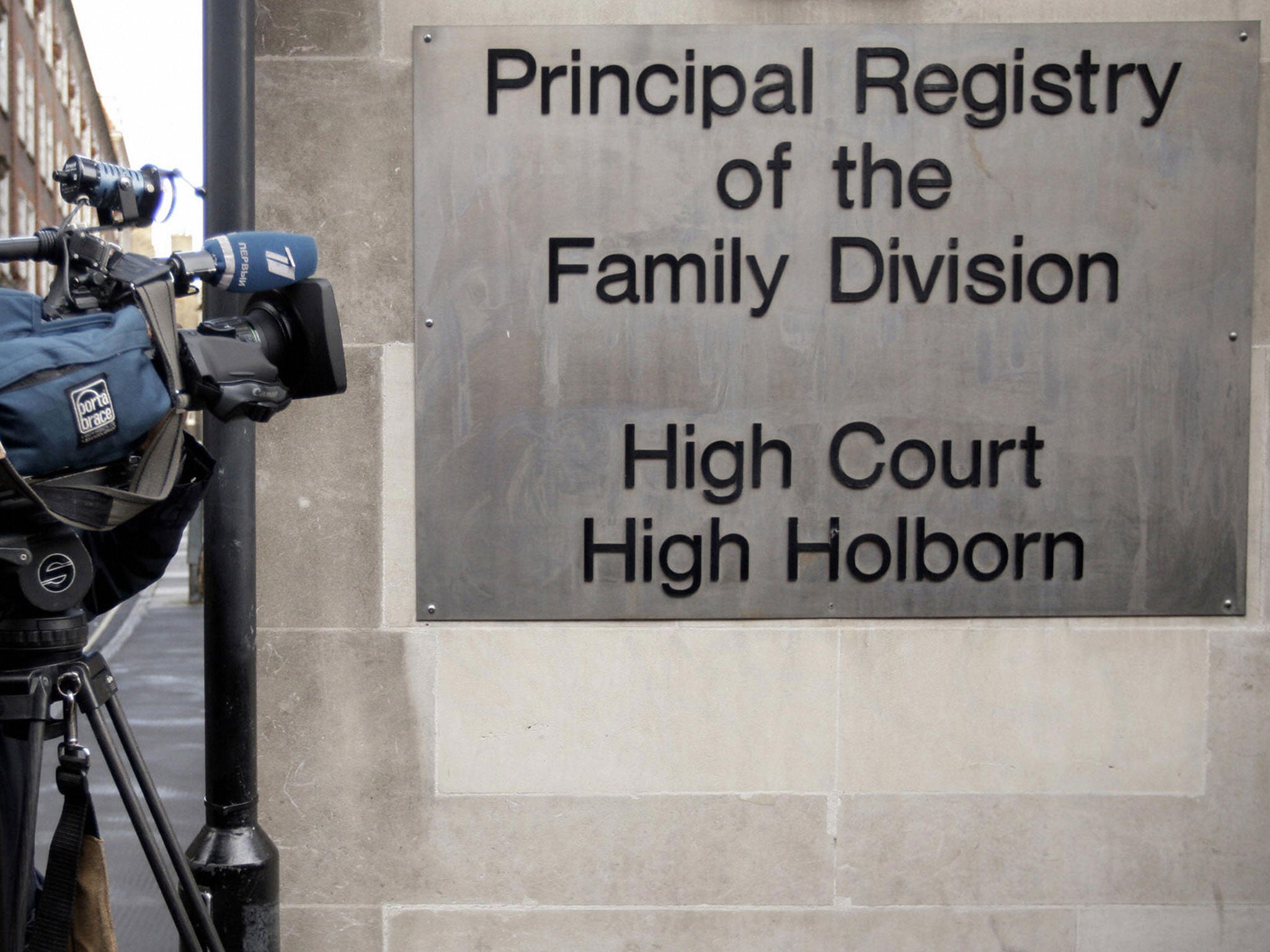Judge to decide treatment of two-year-old disabled boy who 'no longer giggles'
Doctors want a ruling that limiting treatment to palliative care would be lawful and in the boy's best interests

Your support helps us to tell the story
From reproductive rights to climate change to Big Tech, The Independent is on the ground when the story is developing. Whether it's investigating the financials of Elon Musk's pro-Trump PAC or producing our latest documentary, 'The A Word', which shines a light on the American women fighting for reproductive rights, we know how important it is to parse out the facts from the messaging.
At such a critical moment in US history, we need reporters on the ground. Your donation allows us to keep sending journalists to speak to both sides of the story.
The Independent is trusted by Americans across the entire political spectrum. And unlike many other quality news outlets, we choose not to lock Americans out of our reporting and analysis with paywalls. We believe quality journalism should be available to everyone, paid for by those who can afford it.
Your support makes all the difference.Specialists have told a High Court judge that their treatment of a "profoundly neurologically disabled" two-year-old boy who they say no longer giggles when tickled and is "largely unresponsive" should be limited to palliative care.
Doctors want a ruling that limiting treatment to palliative care would be lawful and in the boy's best interests. They say further "invasive" life-saving procedures will distress him and be of little or no therapeutic benefit.
But the youngster's parents - who say their son enjoys being cuddled - object. They disagree with the idea of providing only palliative care and implementing an "end of life plan". They say all treatment options should continue to be available.
Mrs Justice Parker is analysing the dispute at a public hearing in the Family Division of the High Court in London.
She is not expected to make rulings until at least next month.
The judge has said the youngster cannot be identified and no-one involved in the case named.
Barrister Debra Powell, who is representing an NHS hospital trust which has asked for a ruling, outlined doctors' views to Mrs Justice Parker at the start of the hearing on Tuesday.
Miss Powell said the boy suffered from a neurological disorder for which there was no cure.
She said he had been under the care of a neurologist since he was a few weeks old and had spent much of his life in hospital.
"His quality of life is very poor," she said.
"Further invasive interventions are distressing, burdensome and of little or no therapeutic benefit."
Miss Powell said the boy's condition was steadily deteriorating and irreversible - and she described him as "profoundly neurologically disabled".
"He has very little if any awareness of his environment," she told the judge.
"He used to smile and giggle when played with and tickled.
"He no longer does that."
Miss Powell said the boy was "largely unresponsive" - although she said several clinicians had noticed that he appeared more relaxed when cared for by his parents.
A lawyer representing the boy's parents urged Mrs Justice Parker to rule against doctors.
"They don't agree that palliative care should be the only option available to their son or to the implementation of an end of life plan," said barrister Amanda Meusz.
"They wish for all options and treatments to remain available to him."
She added: "The parents take issue with the description of their son's quality of life as described by the clinicians. They visit him on a daily basis and are clear that he responds to their presence. He enjoys being held and cuddled and bathed and massaged. He responds to and enjoys music."
The boy's mother had told the judge in a written statement: "My son does respond to stimulation through touch and greatly enjoys being held and cuddled."
She added: "He responds to my presence and enjoys my company."
The boy was represented by staff from the Children and Family Court Advisory and Support Service (Cafcass) - an organisation established by MPs to safeguard the welfare of children involved in litigation. Mrs Justice Parker will analyse submissions from lawyer Penny Logan about what Cafcass thinks is in the boy's best interests before making decisions.
Press Association
Join our commenting forum
Join thought-provoking conversations, follow other Independent readers and see their replies
0Comments